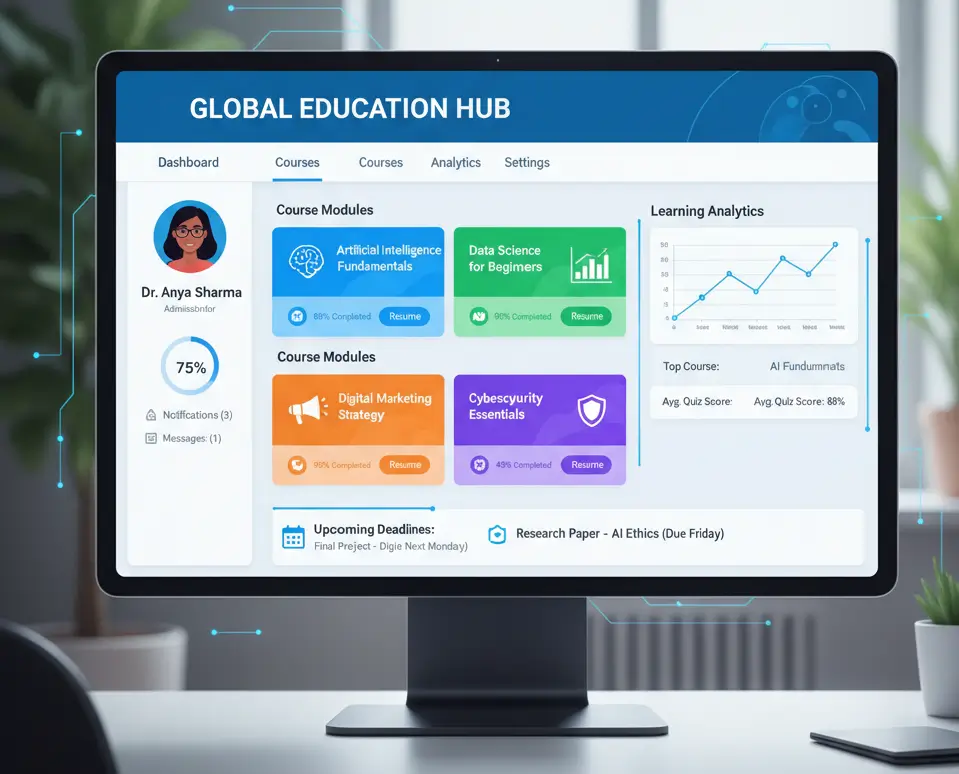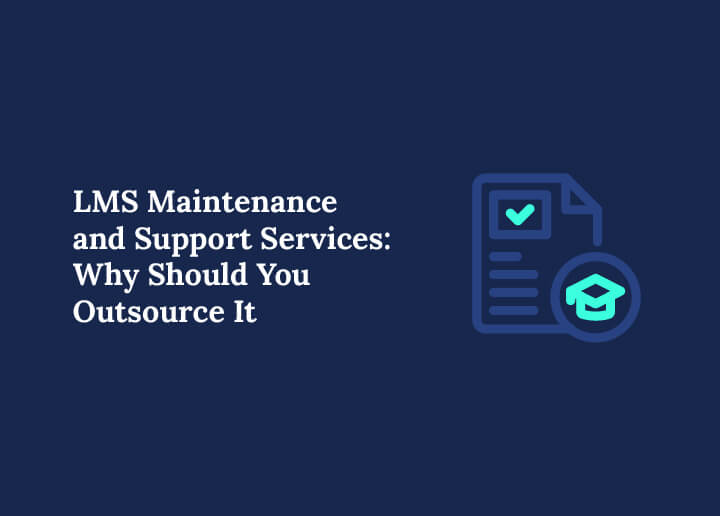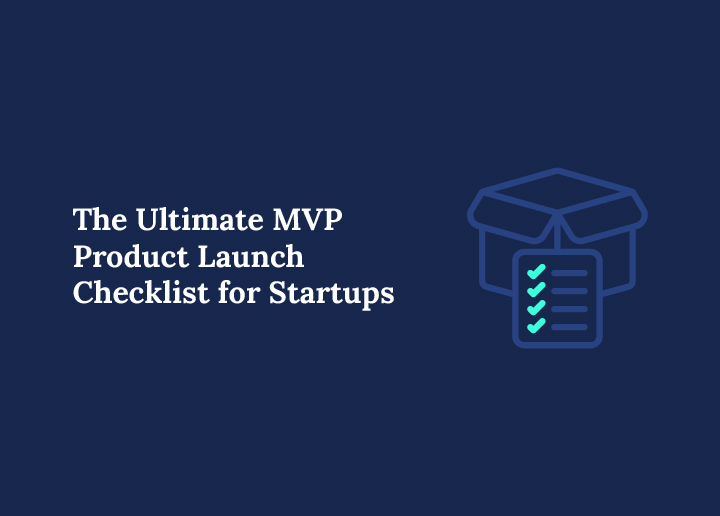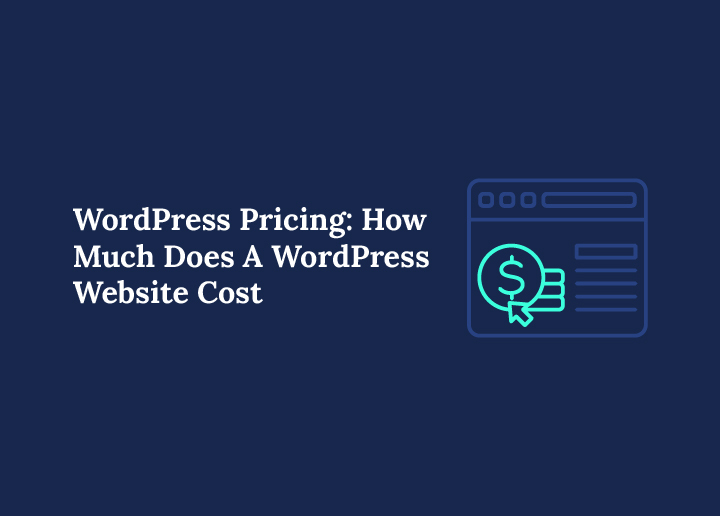Every organization today understands the importance of training and development. A Learning Management System (LMS) plays a critical role in delivering corporate training, compliance programs, and employee upskilling initiatives. But here’s the catch: while implementing an LMS is easy, maintaining it is not. From system updates and user management to security patches and content changes, LMS maintenance is time-consuming and resource-intensive.
Many companies underestimate the effort required, only to find themselves spending more time fixing issues than focusing on training outcomes. This is where outsourcing LMS maintenance and support services becomes a strategic game-changer.
What is a Learning Management System in WordPress?
An LMS is software that allows organizations to:
- Deliver and manage online training programs.
- Track learner progress and performance.
- Store and organize corporate training content.
- Automate compliance and certifications.
When integrated with WordPress, an LMS becomes even more flexible.

Plugins like LearnDash, Sensei LMS, and AcademyLMS transform a WordPress site into a fully functional learning platform. Companies can easily:
- Create courses and quizzes.
- Manage employee enrollments.
- Monitor learning analytics.
However, while WordPress LMS is powerful, it also demands regular maintenance, updates, and technical support to run smoothly. And this is where many organizations struggle.
Challenges of In-House LMS Management
Before diving into outsourcing benefits, it’s important to understand the pain points of managing LMS in-house.
- Resource Intensive: Maintaining an LMS requires a dedicated team skilled in IT, eLearning tools, and WordPress. Smaller organizations often lack this capacity.
- High Costs: Hiring full-time IT professionals and trainers increases overhead. On top of that, infrastructure costs like hosting, security tools, and backup systems add up.
- Technical Complexities: Frequent updates, plugin conflicts, system errors, and user role management can overwhelm non-technical staff.
- Security Risks: LMS platforms store sensitive data such as employee details, compliance certifications, and training history. Without expert management, security vulnerabilities can expose organizations to risks.
- Distraction from Core Business: Instead of focusing on training design and employee engagement, HR and L&D teams get stuck solving technical issues.
These challenges highlight why companies are increasingly outsourcing LMS maintenance and support services.
Solution: Outsource LMS Maintenance and Support
Managing an LMS in-house might seem like the obvious choice. However, as organizations scale, the complexity of maintenance, updates, and troubleshooting often outweighs the benefits.
Outsourcing LMS maintenance and support offers a smarter, more cost-effective approach. It not only reduces the technical burden but also maximizes return on investment. Let’s check out the key reasons why outsourcing makes sense.
Access to Specialized Expertise
One of the biggest advantages of outsourcing is access to professionals who specialize in LMS management.
These experts bring years of technical know-how in WordPress-based LMS platforms, plugins, and corporate training systems. As a result, they can:
- Ensure seamless system upgrades and configurations.
- Resolve technical issues quickly with minimal downtime.
- Implement best practices for scalability and learner engagement.
For example, if your LMS crashes during a compliance training deadline, an outsourced support team can restore it faster than an in-house generalist. This level of expertise ensures smooth learning experiences without unnecessary interruptions.
Explore: Best LMS Development & Maintenance Companies
Cost Savings
Another compelling reason to outsource is the potential for significant cost reductions. In-house management often involves hidden expenses such as:
- Hiring and training IT staff.
- Purchasing specialized software tools.
- Maintaining infrastructure and servers.
With outsourcing, these costs are replaced by a predictable monthly or annual service fee. This allows better budget management while eliminating surprise expenses. Additionally, companies avoid the financial burden of retaining full-time specialists who may only be needed occasionally.
Find Out: How LMS Consultation Enhances E-Learning Success
Enhanced Security and Compliance
LMS platforms store sensitive employee data, training history, and compliance certifications. Any vulnerability can lead to costly data breaches or compliance violations.
Outsourced LMS support providers prioritize security by:
- Monitoring system vulnerabilities around the clock.
- Applying patches and updates regularly.
- Ensuring compliance with standards like GDPR, HIPAA, or industry-specific requirements.
This proactive approach protects organizations from risks and helps maintain trust among employees, partners, and regulators.
Focus on Core Training Goals
Running an LMS requires countless repetitive tasks, from user role management to plugin updates and backups. While essential, these activities often distract learning and development (L&D) teams from their primary role: designing effective training programs.
By outsourcing LMS support, organizations free their internal teams from technical distractions. This shift enables them to concentrate on what truly matters, i.e., creating impactful training content, improving learner engagement, and driving skill development.
Related: How Enterprise Learning Management System Helps Transform Employee Training
24/7 Support and Quick Issue Resolution
Internal teams typically operate within standard office hours. However, employees across different regions may access the LMS at any time. Downtime or technical glitches outside of office hours can quickly disrupt training.
Outsourced providers often deliver round-the-clock support, ensuring that issues are addressed promptly regardless of time zone. This guarantees a seamless, uninterrupted learning experience for employees worldwide, which is difficult to achieve with in-house teams alone.
Check out: Top WordPress LMS Themes
In-House Management vs Outsourcing LMS
Let’s compare the two approaches to understand the differences between cost, expertise, and efficiency.
| Criteria | In-House LMS Management | Outsourced LMS Support |
| Cost | Managing an LMS internally requires significant investment in salaries, training, and infrastructure, which can quickly become expensive. | Outsourcing allows businesses to pay a predictable service fee, which is often more cost-effective. |
| Expertise | Internal teams may lack advanced LMS expertise and struggle with complex technical issues. | Outsourced providers bring specialized skills and experience in WordPress LMS platforms and eLearning systems. |
| Flexibility | Scaling up requires hiring more staff and expanding infrastructure, which takes time. | Outsourcing provides immediate scalability with resources that grow as your organization expands. |
| Security | Internal teams may overlook critical updates or miss vulnerabilities, increasing risks. | Outsourced providers deliver proactive security monitoring, regular patches, and compliance assurance. |
| Focus | In-house teams spend valuable time on technical tasks, pulling focus from training goals. | Outsourcing frees internal teams to focus on content creation and employee development. |
What Seahawk Media Delivers with LMS Maintenance & Support?
Seahawk Media manages all technical complexities so that you can focus entirely on delivering value through your content.

Here’s what our LMS maintenance and support services include:
- Comprehensive System Care: We ensure your LMS stays current and high-performing by handling all core updates, routine cloud backups, and database optimization. Our goal is to keep your platform reliable and fast.
- Robust Security & Uptime: We actively monitor for vulnerabilities, apply security patches, manage SSL, WAF, CDN, and enforce DNS/DDoS protections. Plus, uptime monitoring ensures your system stays accessible and protected.
- Proactive Performance Optimization: From image compression to site speed enhancements and pre-emptive hacked-site repairs, we boost site speed and performance while minimizing downtime risks.
- Responsive Support & Custom Development: Enjoy real-time assistance via Slack alongside scheduled on-demand development hours tailored to your unique needs. We back this up with clear maintenance reports to keep you informed.
- Expert Guidance & Proactive Approach: We combine deep expertise in LearnDash and Academy LMS Pro with consultancy and dedicated account management. We anticipate issues and deliver scalable, cost-effective solutions aligned with your goals.
Maximize ROI with Expert LMS Support
Save time, cut costs, and deliver seamless training by partnering with Seahawk’s dedicated LMS maintenance team.
Case Study: Empowering Nonprofits with “The Eight Principles”
The Eight Principles, founded in Boise in 2007, empowers nonprofits to scale fundraising, achieving up to 600% revenue growth in a year.

As the organization expanded into India, it needed a revamped LMS-enabled platform with WooCommerce integration, multi-currency payments, geolocation redirection, and multilingual support.
Seahawk delivered a seamless solution, ensuring a smooth transition without data loss while enhancing user experience. The result was a robust, intuitive platform that met global expansion needs and delighted the client.
LMS Maintenance and Support Services: Key Areas Covered
For an LMS to function seamlessly and deliver maximum value, it requires ongoing maintenance and expert support.
A professional LMS service provider takes care of both the technical and operational aspects, ensuring your system continues to align with evolving business needs.
Here are the key areas typically covered:
- System Updates: Regular WordPress and plugin updates keep your LMS stable, compatible, and secure against vulnerabilities.
- Content Management: Providers handle uploading, organizing, and updating courses, videos, and assessments to keep learning content current and accessible.
- User Management: From onboarding employees to assigning roles and resolving login issues, outsourcing simplifies day-to-day user administration.
- Integration Support: Seamless connections with HR systems, CRMs, or payment gateways ensure smooth workflows and a connected training ecosystem.
- Security Management: Firewalls, backups, and disaster recovery protocols protect sensitive data while ensuring compliance with industry standards.
- Performance Optimization: Expert tuning improves site speed and accessibility, creating a better learning experience for employees.
- Data Management: Accurate tracking of learner progress, compliance reports, and analytics enables informed decision-making.
Know more: LearnDash vs TutorLMS for WordPress
Why Outsourcing LMS Support Makes Strategic Sense?
Outsourcing LMS maintenance and support is not just about fixing technical issues but also about aligning technology with business goals, controlling costs, and creating a seamless training experience.
Let’s look at three core reasons why outsourcing is a smart move.
Business Needs and LMS Alignment
Every business has unique training needs, whether it’s compliance, onboarding, or leadership development. Outsourcing LMS ensures:
- Customization: Configuring user roles, course paths, and certification requirements.
- Scalability: Supporting growth from 50 to 5,000 learners without downtime.
- Flexibility: Adapting LMS features as business models evolve.
This alignment guarantees that your LMS is not just a tool but a strategic asset.
Discover: How to Create an LMS Website With WordPress
Cost-Effectiveness of Outsourcing LMS Support
Cost is a big motivator for outsourcing. Here’s why outsourcing makes sense financially:
- Reduced Hiring Costs: No need to hire specialized IT staff.
- Predictable Pricing: Most LMS providers offer packages with Service Level Agreements (SLAs).
- Lower Infrastructure Costs: Providers handle hosting, backups, and performance optimization.
- Scalable Plans: Pay only for what you use. This is ideal for growing organizations.
Example: A small business with 200 employees can save 30-40% annually by outsourcing instead of hiring an in-house LMS admin.
Complete Guide: Tutoring Websites 101
Corporate Training and WordPress LMS: Real-World Example
Imagine a mid-sized company using WordPress + LearnDash to deliver compliance training.
- In-house: HR spends hours troubleshooting login issues, IT struggles with plugin updates, and learners complain about downtime.
- Outsourced: A managed LMS provider ensures 99.9% uptime, automates enrollments, integrates the LMS with HR software, and provides analytics dashboards for leadership.
The result? HR can design better training, IT focuses on core infrastructure, and employees enjoy seamless learning experiences.
Key Factors to Consider Before Outsourcing LMS Support
Choosing the right partner for LMS support services is a decision that impacts both technology and employee training outcomes. The provider you select will influence how your platform supports development programs, learning objectives, and overall employee performance.
Here are the essential factors to evaluate:
- Experience and Reputation: Look for a provider with proven expertise in WordPress LMS platforms such as LearnDash or LifterLMS. A skilled LMS administrator ensures seamless LMS administration while protecting your LMS investment.
- Support Model: Evaluate their response times and availability. 24/7 management system support guarantees uninterrupted training functions and smoother learning experiences.
- Security Standards: Verify compliance with GDPR, HIPAA, or ISO standards. Strong security practices safeguard data while supporting the organization’s training goals.
- Scalability: As your company grows, so should your LMS. Ensure the provider can handle higher user loads and adapt to evolving needs.
- Cost Structure: Transparent, flexible pricing highlights the benefits of outsourcing without hidden costs. Predictability here helps organizations focus on core business functions.
- Customization Options: Confirm that the provider can tailor features to align with unique learning objectives and employee training requirements.
By carefully weighing these considerations, outsourcing LMS administration becomes a strategic step toward stronger training outcomes.
Simple Steps: How to Migrate from Moodle to WordPress
Conclusion: The Smart Move for Future-Ready Training
Managing an LMS in-house may work for a while, but as your organization grows, it quickly becomes inefficient and costly. Outsourcing LMS maintenance and support services provides a smarter, cost-effective, and scalable solution.
With specialized expertise, predictable costs, enhanced security, and 24/7 support, outsourced LMS services free your team to focus on what truly matters, i.e., delivering impactful corporate training and driving business growth.
The future of learning is digital, and outsourcing LMS maintenance and support ensures your organization is always ready to adapt.
FAQs About LMS Maintenance and Support
Why should organizations outsource LMS support?
Outsourcing provides significant advantages such as expert technical skills, reduced costs, and enhanced efficiency.
How does outsourcing impact internal employees?
It frees internal employees from routine maintenance, allowing them to focus on training initiatives and organizational goals.
Can outsourcing support personalized learning paths?
Yes, it does. Providers design personalized learning paths aligned with each organization’s development strategy and learning objectives.
What are the key benefits of outsourcing LMS administration?
The key benefits include reliable system updates, secure data integrity, and improved user engagement.
How do I evaluate an LMS provider’s credibility?
To evaluate an LMS provider’s credibility, check for a proven track record in LMS experience, course creation, and third-party integrations.
What are the necessary resources for effective LMS management?
Effective LMS management requires the necessary resources like skilled administrators, automation tools, and responsive support.
What are the key considerations before outsourcing LMS support?
Important key considerations include scalability, cost structure, customization options, and alignment with organizational goals.



